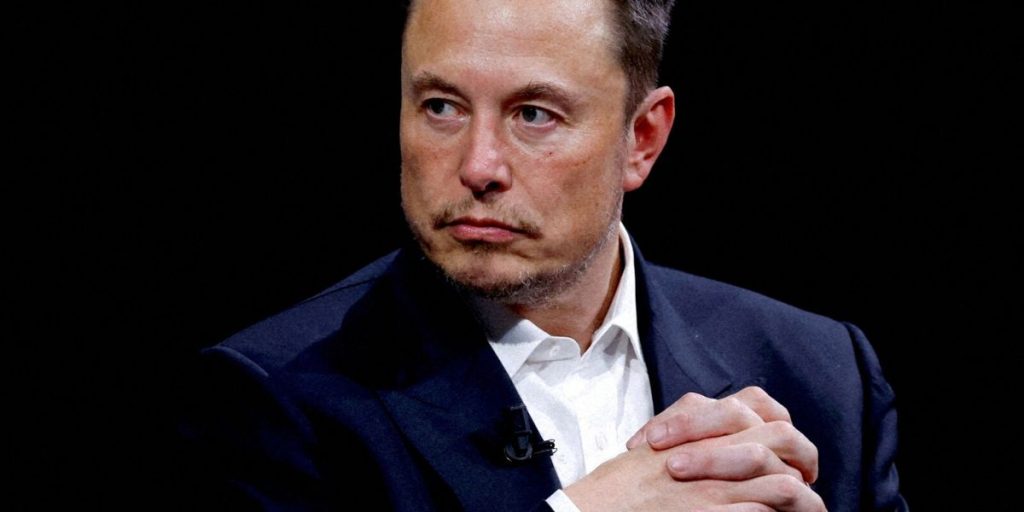In a scathing interview with The New York Times, Microsoft co-founder and philanthropist Bill Gates strongly condemned tech billionaire Elon Musk, linking his influence on government policies to the deaths of the world’s most vulnerable children.
Gates attributed the recent dismantling of U.S. foreign aid programs—including lifesaving initiatives by the U.S. Agency for International Development (USAID)—to Musk’s involvement in the controversial Department of Government Efficiency (DOGE).
The DOGE program, originally introduced during the Trump administration and revived under recent reforms, aimed to eliminate bureaucratic “waste.”
Gates, however, claims it led to dangerous outcomes, including the elimination of critical health programs in impoverished regions. He labeled DOGE “geographically illiterate,” citing a case where aid for Mozambique’s Gaza Province was cut due to confusion with the Gaza Strip.
Gates said, “We had programs delivering HIV medication to prevent mother-to-child transmission. They were cut because someone thought Gaza Province was in the Middle East, not in Africa.”
The Fallout from USAID Cuts: Preventable Deaths and Lost Progress
According to Gates, the consequences of DOGE’s foreign aid cuts are catastrophic. Key health programs—particularly those aimed at combating childhood diseases and HIV in African nations—have been suspended or defunded altogether.
“The world’s poorest children are dying because the richest country made a bookkeeping error,” Gates told reporters. “This is not just about money—it’s about survival.”
Some of the terminated programs included:
- Mother-to-child HIV transmission prevention in Mozambique
- Malaria vaccination and prevention campaigns in sub-Saharan Africa
- Contraceptive and maternal health supplies in rural clinics
- Childhood nutrition and vaccination programs funded through USAID
For more detailed reporting on the controversy, read the Business Insider article here.
Gates warned that the world could regress significantly in the fight against childhood mortality. “We brought child deaths down from 10 million to 5 million per year. Now that number could climb back to 6 million if we don’t act fast.”
The impact extends beyond Africa. Programs in Asia and Latin America that support immunization, clean water access, and maternal care have also suffered setbacks due to DOGE-related budget reductions.

A Billionaire Clash: Gates vs. Musk
The criticism is the latest flare-up in the ongoing rivalry between Gates and Musk, two of the world’s most influential billionaires who often clash over politics, philanthropy, and the future of technology.
While Gates has long prioritized global health through the Bill & Melinda Gates Foundation, Musk’s focus has been on advancing technology, space exploration, and recently, streamlining government inefficiency through DOGE.
DOGE was initially promoted as a digital governance initiative to automate public sector operations. However, critics argue it cut essential services without considering real-world consequences. Gates claimed that Musk’s support of DOGE lacked basic geographic understanding, leading to fatal errors in foreign aid policy.
“Elon is brilliant, but brilliance doesn’t excuse negligence,” Gates said. “Cutting a program because you confused Gaza with Gaza Province is not a smart mistake—it’s a deadly one.”
Musk has not responded directly to Gates’ remarks. However, his past statements suggest he views federal aid programs as inefficient and ripe for tech-driven reform.
Gates Pledges $200 Billion to Repair the Damage
In light of the damage he believes DOGE has caused, Gates announced that he will accelerate his charitable giving, pledging to donate nearly all his estimated $200 billion fortune by 2045. His foundation, one of the largest philanthropic organizations in the world, plans to intensify its focus on global health, education, and climate change.
“We will give every cent away before 2045 and then shut down the Gates Foundation,” he said. “We’re in a crisis. It’s time to act like it.”
The move marks a dramatic escalation of Gates’ philanthropic mission, but also serves as a direct challenge to billionaires like Musk, whom Gates believes are prioritizing space exploration and AI over solving immediate, real-world problems.
Conclusion: A Wake-Up Call for Global Priorities
Bill Gates’ stark warning about the consequences of misguided foreign aid cuts is a powerful reminder of the interconnectedness of global health, policy, and philanthropy.
As Gates and Musk represent two competing visions of progress—one grounded in humanitarianism, the other in technological disruption—the debate over DOGE and its impact is likely to intensify.
Gates’ assertion that “the richest country has abandoned the poorest children” raises serious ethical questions about leadership, accountability, and the role of billionaires in shaping public policy.
As governments and private sectors reevaluate priorities, one thing is clear: human lives must come before political and technological experiments.
For further reading on Bill Gates’ philanthropic response and his remarks on USAID, visit The New York Times and The Guardian.
Disclaimer – Our team has carefully fact-checked this article to make sure it’s accurate and free from any misinformation. We’re dedicated to keeping our content honest and reliable for our readers.
